Newsletter Spring 2020
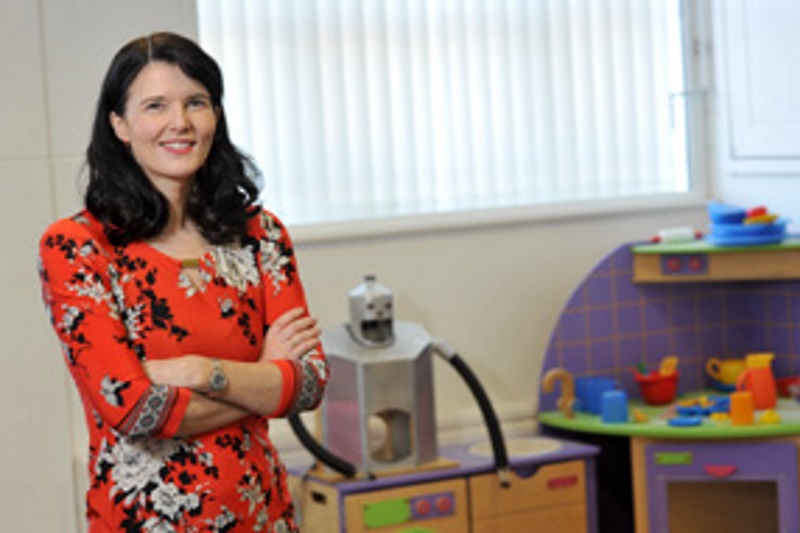
Welcome from our Head of School, Professor Teresa McCormack
We are towards the end of another academic year and no-one could have predicted the changes and uncertainty that we have faced over the last few months.
It has been an unprecedented time for our students and staff as we have transitioned to a new way of working, teaching, learning and assessing. It has not come without its challenges, but I am personally delighted by how our Queen’s Community and particularly the staff and students of the School of Psychology has rallied together.
I am pleased to share below some highlights of what’s been happening over the last couple of months, both pre and post Covid-19.
Professor Teresa McCormack
Head of School
School of Psychology, Queen’s University Belfast
t.mccormack@qub.ac.uk
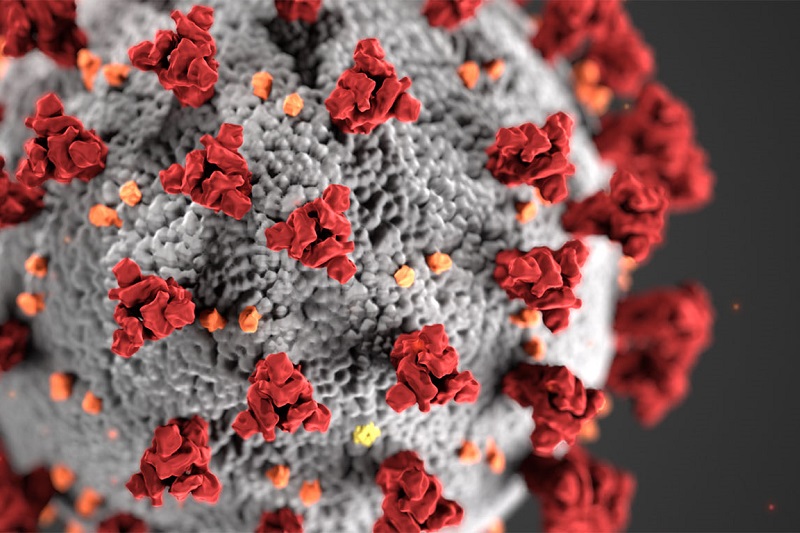
During this global pandemic, it is clear that Covid-19 has both a physical and mental impact on the sufferers, their carers and the wider community.
We are delighted that we have been able to contribute to the analysis and discussion around the psychological impact of Covid-19.
In case you missed it:
• Our Clinical Psychology team provide useful tips for everyone on how to stay mentally well
• Dr Chris Graham discusses loneliness during social isolation
• Dr Martin Dempster explores the behavioural changes required
Covid-19 related research:
• Prof Cherie Armour is actively researching the mental health implications of Covid-19
• Dr Jenny Groake is examining the impact of physical distancing regulations on social interaction, isolation and loneliness
Get involved!
To contribute to these studies, or to learn more about active research project, please remember to follow us on social media: Facebook / Twitter / LinkedIn
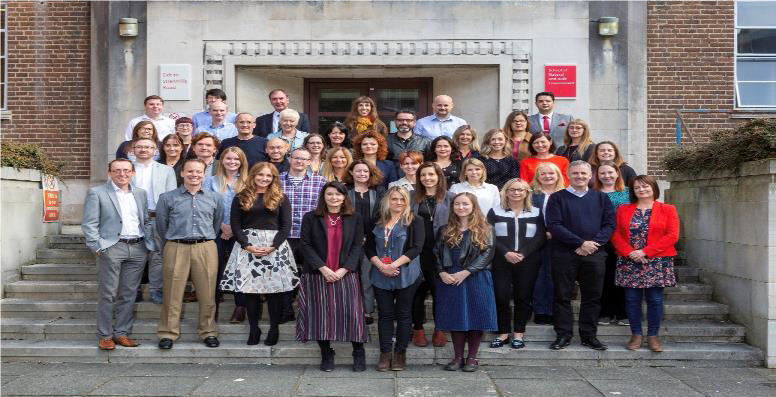
Hello and Goodbye!
Dr Salvador Alvidrez is with us for two years and undertaking a project on intergroup contact in virtual reality. His research focusses on cognitive, attitudinal, and behavioural effects derived from the use of communication technologies. For more information on his research visit: http://www.qub.ac.uk/sites/contact-virt/
In January, we said goodbye to Professor Peter Hepper as he embarks on his retirement. Many of you will remember that Peter held the position of Head of School and played a large part in shaping the School as it is today. His work on fetal development and animal behaviour has been enormously influential internationally, and students who graduated in recent years will probably remember his very popular course on the Psychology of Serial Killers. We thank him for the enormous contribution he made and we wish him the best of luck in this new chapter.
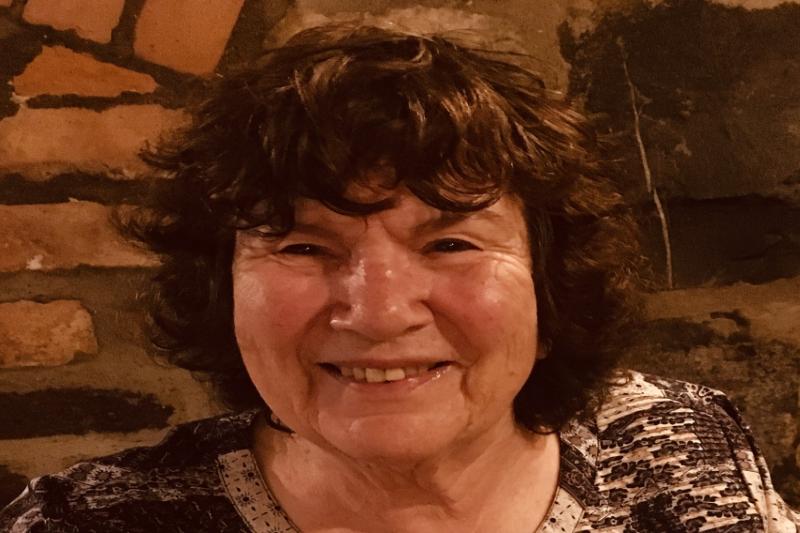
Dr Karen Trew
Our Alumni spotlight for this edition is our colleague Dr Karen Trew, who remembers the School from the 1960s when our home was in Lennoxvale just off Belfast's Malone Road. I’m sure many of you remember studying with or being taught by Karen and we hope you enjoy her reflections.

The School of Psychology was delighted to be involved in the NISF this year
Events included:
- Dr Kostas Papageorgiou presented findings which suggest dark personalities such as Machiavellianism, Narcissism, Psychopathy and Sadism are neither bad nor good
- Dr Ioana Latu presented her work around whether Virtual Reality can improve gender equality in science
- Prof Teresa McCormack presented her research into people’s ideas about time and how children’s understanding of time changes as they grow up. Teresa was also involved in a live panel event at the MAC which will be broadcast as part of the BBC Radio 4 “All in the Mind” series.
Please get in touch if there are any areas of Psychology that you would like to see at #NISF2021
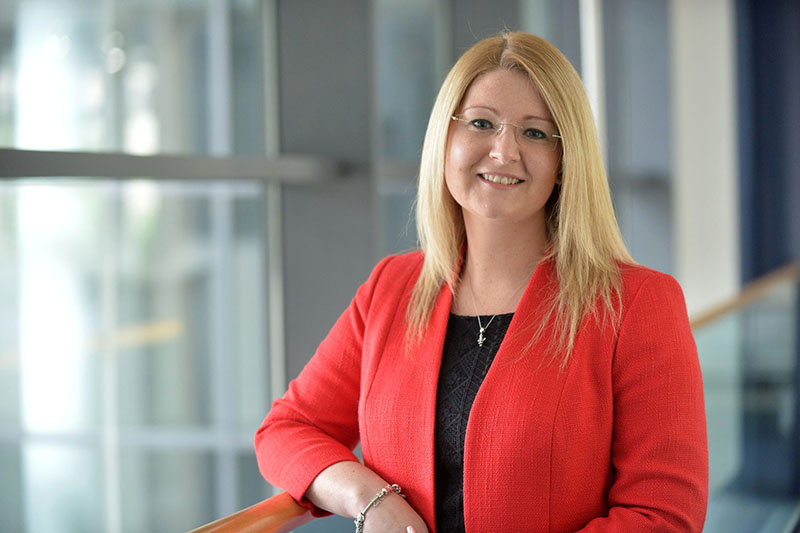
Study on the psychological health and wellbeing of ex-service families
Professor Chérie Armour, has been awarded £306,956 of funding (commissioned by Forces in Mind Trust) to conduct a UK-wide study examining the psychosocial determinants of psychological health and wellbeing for UK military veteran families.
The project will identify the psychological health and wellbeing needs of families of ex-service personnel across the UK .Through a survey, in-depth interviews and focus groups with families, the research will examine the drivers that support psychological wellbeing as well as the challenges that come with having a member of the family in the Armed Forces. It will also identify the likely future needs of ex-service families.
Chérie says: “We are delighted to receive this award and take forward this important piece of research. Families are key to the health and wellbeing of military veteran populations as they provide that first line of support. We understand that being a family member of a veteran can at times come with challenges. Families may have experienced a number of geographical re-locations during a military career, have had worry and upset during times of the service person’s deployment, and may have experienced some economic, social, and psychological challenges because of transition from military to civilian life; the family transitions with the service person. A smaller proportion may also be caring for our veterans who are suffering mental ill health.
“What we need is a robust and detailed understanding of what that means for the family and their own personal health and wellbeing. This award allows us to investigate exactly that and to provide a solid evidence base upon which family support providers can call upon when designing support services.”
To learn more about this study, contact STARC@qub.ac.uk or c.armour@qub.ac.uk

Helping Kids provides hands-on experience for our students
Dr Jocelyn Dautel leads research opportunities for Psychology undergraduate students working on international projects exploring children’s empathy and prosocial behaviours within the Helping Kids! Lab.
Through Research Skills Awards, our students have the opportunity to collaborate with research teams to collect cross-cultural data in Northern Ireland, Croatia, Kosovo, Israel, and the Republic of North Macedonia.
Students participate in regular virtual training meetings with their international colleagues to learn how to conduct quantitative and qualitative research with children aged 6 to 11 across contexts of historic group conflict. For instance, in one study researchers interview children and ask them to draw pictures about their neighborhoods and the concepts of peace or conflict. In another study, we experimentally measure how children sort group-related symbols and distribute stickers (a coveted resource to little ones!) to ingroup or outgroup members. Through this cross-cultural work, we hope to understand what is unique and what is universal in the development of social identity, empathy, and prosocial behaviour.
The implications of these results for educational policy and understanding antecedents to children’s peacebuilding can lead to improved intergroup relations in settings of intergroup conflict around the world. Read more about our findings here.
Overall, we aim to apply this understanding about social groups to promote positive intergroup attitudes and behaviors among children, eventually leading to more cohesive societies. This year we are excited to have Risa Rylander (former MSc Psychology of Childhood Adversity, ’17), Louise Shields (current BSc Psychology student) and Rua Cleary (current MSc Conversion student) on board exploring children’s understanding of European identity, symbols, and concepts like Brexit in these countries.
To learn more about our education opportunities visit: http://www.qub.ac.uk/schools/psy/Study/
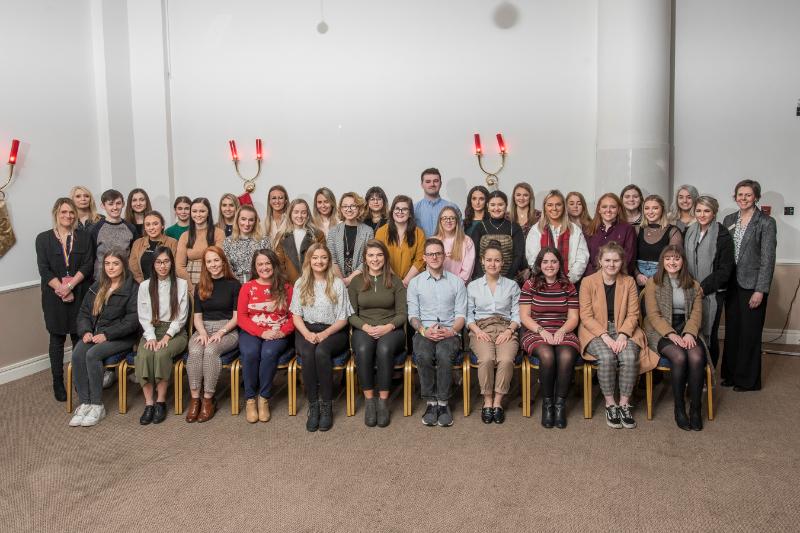
We hosted our seventh Insight Programme Poster Presentations this year at the Wellington Park Hotel.
38 final year Psychology students presented their placement experience to employers, academics, University colleagues and peers.
Our undergraduates complete 15-20 days on placement across the public, private and third sector and we would especially like to thank the following partners who joined us this year:
Belfast City Council – Economic Development Unit, Department for Communities, INCISIV, MXB, Performance Breakthrough, Adventures Day Nursery, Holy Rosary Primary School, St Bride’s Primary School and Action on Hearing Loss.
A student this year said of the experience: “the placement experience was…probably one of the best experiences in my whole degree as I got to meet lots of new people and got a real insight into how my degree was related to the real world”
An industry partner said “They (students) are a pleasure to support and their keenness to learn and develop their knowledge and skills is very evident” and 100% of employer would recommend the programme.
If you’d be interested in learning more about placement opportunities, please contact Patricia Murphy at: patricia.murphy@qub.ac.uk

If you are considering pursuing a postgraduate qualification, please get in touch with us and discuss your options available.
We currently offer:
- MSc Clinical Health Psychology
- MSc Applied Developmental Psychology
- MSc Psychological Science
- Doctorate in Clinical Psychology
- Doctorate in Educational, Child & Adolescent Psychology
- Postgraduate research opportunities
As well as:
- BSc Psychology
- BSc Psychology with Professional Placement (transfer from BSc Psychology at the end of Year 2)
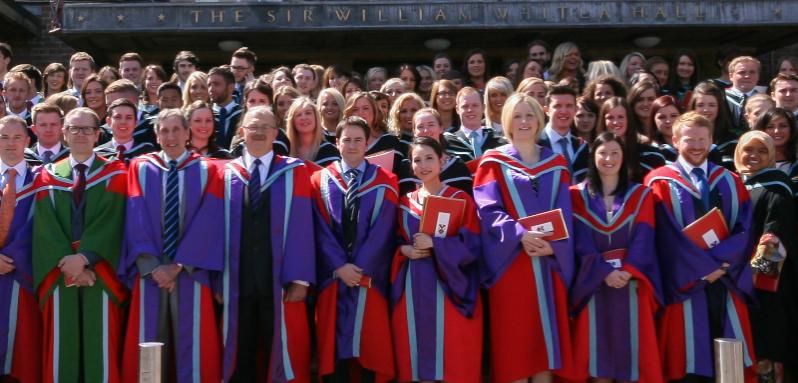
You are part of an 180,000-strong family of Queen’s Alumni around the world!
We would love to be able to share stories of your success with your fellow alumni.
To keep up-to-date with alumni services and news, please check your details with us at: https://daro.qub.ac.uk/UserLogin
And if you’d like to be featured in our next Alumni newsletter or have news to share about your international experience, please contact Patricia Murphy within our School (patricia.murphy@qub.ac.uk)
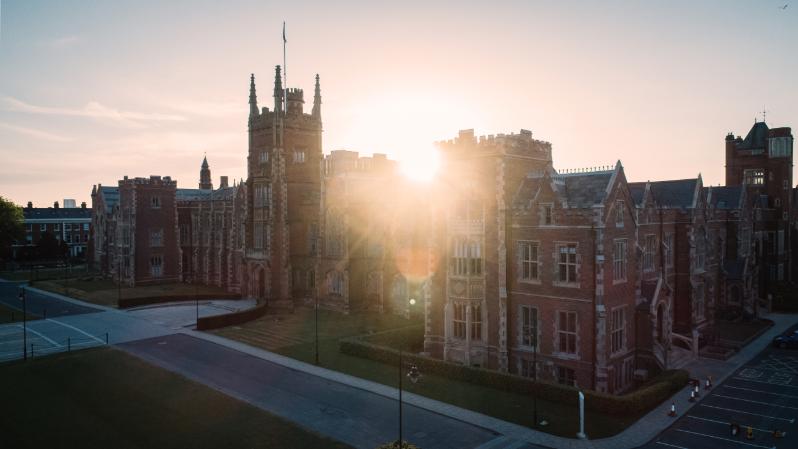
Were you an international student? Would you like to reflect on your experience to help us?
We have a vibrant and growing community of international students. 34 nationalities are represented in our current cohort, and the School is enriched as a result of this cultural diversity. We want our international students to have a high quality experience, and feedback from current and former students is encouraged and valued.
We have created a short online survey to help you to provide some feedback on your experience. It will take 5 minutes to complete, and we would like to receive responses by 31 July 2020. We will use the anonymous information you provide when developing our international student support strategy for next year and beyond. You may also include your email if you would like to be contacted for further information.
The survey can be found by clicking here
If you have any questions about the survey or other issues related to internationalisation, please email Dr Judith Wylie, Director of Internationalisation (jw.wylie@qub.ac.uk)
